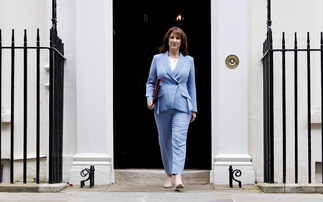The Department for Work and Pensions (DWP) has confirmed that it will increase the general levy pension rates from April 2021 in line with its preferred option.
In its response to its consultation on The Occupational and Personal Pension Schemes (General Levy) Regulations Review 2020, the DWP said option one was preferred as it would "better reflect the differing levels of attention devoted by the supervisory regime as against scheme type".
At the same time, it said this option would preserve "the collective approach that underpins the current levy system", together with the inherent simplicity and operability of a levy system based on the number of members in each scheme.
The general levy funds The Pensions Regulator (TPR), The Pensions Ombudsman (TPO), and the pension-related activities of the Money and Pensions Service (MAPS) but the DWP found there would be a potential £230m funding gap should rates remain unchanged.
The government's consultation on the future of the general levy - launched in December 2020 -sought to close this gap, setting out three options for the future framework.
Currently there are two pensions levy rates, one for both occupational defined benefit (DB) and defined contribution (DC) schemes, and the other for workplace personal pensions. Levies are payable based on the total number of active and deferred members. There are seven levy bands, where the levy unit rate reduces based on the size of the membership.
The chosen option will introduce separate rates for DB, DC, master trust, and personal pension schemes - increasing rates by 10% for DB and DC schemes in 2021/22 and 5% for master trusts and personal pensions schemes.
Option two would have increased rates but created one rate for master trusts, another for DB and DC schemes, and a third for personal pension schemes. Option three would have seen the existing levy structure retained, but rates increased.
Aegon head of pensions Kate Smith said: "We welcome the introduction of four separate levy rates for DB, DC, master trust and personal pensions schemes which is a fairer and more proportionate approach, better aligned to the need for TPR's supervisory attention.
"This is particularly the case for DB schemes, which will face the biggest increases, as this is where most of the regulator's energy is focused, and this is set to increase now that the Pension Schemes Act 2021 is in place, giving the regulator more powers. It is only fair that these schemes pay the most.
She added: "Larger schemes, by membership numbers will continue to pay lower per member rates, supporting the DWP's push towards bigger, fewer, schemes. However, there is still the ongoing problem that the same levy rate is paid regardless of whether the member is active or deferred. This is a growing issue particularly for some master trusts which have an increasing number of small frozen pensions pots largely due to the success of auto-enrolment.
"In some cases the levy could be higher than the pension charges received in respect of these small pots. Work has started on initiatives to find solutions to deal with the small frozen pot issue, but implementation could be some years away. It might have been better if the DWP had put in place a temporary solution to support schemes to deal with this issue in the meantime."
Smart Pension director of policy Darren Philp said: "While an increase in the general levy is never welcome, especially during these tough economic times, we are pleased that the government has decided to proceed with the sensible option of more closely aligning regulatory costs with funds raised from the levy. While this doesn't wholly address the unfairness of the current levy formula, it is a welcome signal that we needed a new more proportionate approach for funding regulatory activities.
"While this latest announcement is as good as we could have hoped for, we would still like to see a more fundamental review of the levy, which also needs to encompass the Fraud Compensation Fund given the recent court case that extended its scope, and deliver better scrutiny of expenditure that the levy is financing."









